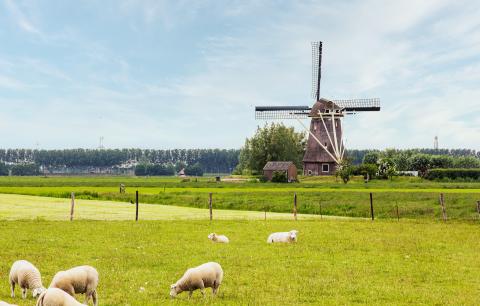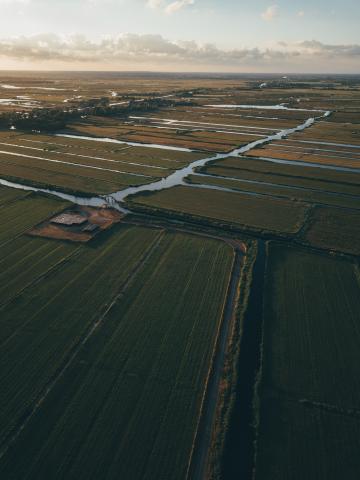Allard exchange student creates website to inform the Dutch public about the farming sector's contributions to climate change

Centre for the Law and the Environment Assistant
Oct 3, 2023
In the Netherlands, dismay over national emission reduction policies focusing on the country's agricultural sector have become a dominating force in Dutch politics. In response to the government’s commitment to halving the country’s overall nitrogen emissions by 2030, much of which is generated by the agricultural sector, farmers blockaded roads with tractors and confronted Ministers. And they were successful in giving attention their cause. In the March 2023 provincial elections, anger over policies to reduce nitrogen emissions from farms propelled the farmer’s party, Farmer-Citizen Movement, which previously had zero seats in the Dutch Senate, to become the largest force in the chamber.

When given the opportunity to create a project as a part of Allard’s Green Rights and Warrior Lawyer seminar, Jade Windsant, an exchange student from Leiden University in the Netherlands, decided to create a website to help the regular person craft an informed opinion about the climate policies at the center of these clashes.

To fill this gap, she created the website Beyond the Farmer Protests, which provides a holistic look at the issues at play in the protests. The site breaks down how the Dutch agricultural sector operates, how particular agricultural practices fuel climate change, and the regulations that the Dutch government has crafted to try to reduce emissions from the agricultural sector. It also discusses concrete innovations that the Dutch government is supporting that could make the sector more sustainable.
The site also tackles a common misconception: that the regulations are highly restrictive and include unrealistic reduction goals. In her research for the site, Jade was surprised to learn that the controversial regulations don’t include any hard restrictions or consequences for not hitting certain benchmarks. In reality, these regulations are just a set of subsidies to encourage farmers to adopt more sustainable practices: “I don’t think that people know that that’s the case.”
Among other things, farmers can receive subsidies for implementing methods of circular agriculture where the “residue of one chain of farming is re-used as a resource for another chain of farming”, practices to improve the processing of manure, and low-emission stable systems. Yet “these new innovations are not promoted as much as they could be” Jade explains. The farmers “only hear the restrictions but not a lot about their options.”
But the site doesn’t just focus on the environmental aspects of Dutch agriculture. Jade starts the site with a deep dive into the history of the sector that also highlights its ongoing importance to the Dutch economy. “I really wanted to paint a full picture”, Jade explained. As the second largest by value agricultural exporter in the world, agriculture is both integral to the Dutch economy and a major source of food for people around world. By not minimizing this side of the story, Jade helps us make sense of the politics that have engulfed the Dutch government's policy efforts. But by simultaneously highlighting the new practices that can help the sector become more sustainable, she helps us see that by peeling back the politics and looking at the elements at play, there is hope for a green transition that still respects the country's prominence as a producer of agricultural goods.
Want to learn about the Dutch agricultural sector and emission policies? Take a look at Jade’s website, Beyond the Farmer Protests.
- Centre for Law and the Environment


